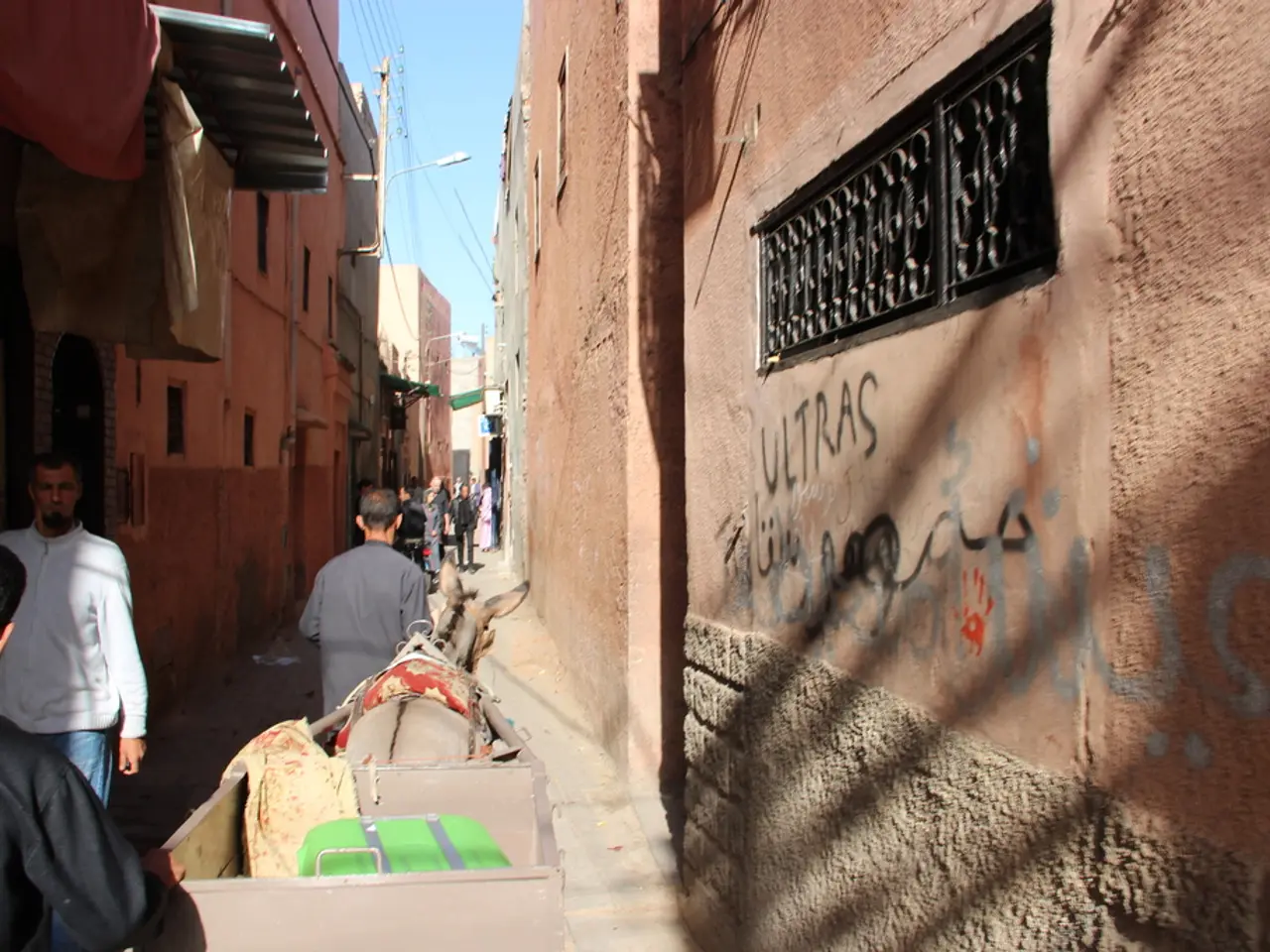Israeli Domination Over Gaza: A Means of Suppression
Thousands of people demonstrated in Berlin against the ongoing deaths in Gaza, as world leaders discuss plans for the "reconstruction" and "resettlement" of the region. The recent unrest in Gaza is a stark reminder of the deep-rooted economic inequalities that have persisted in the Palestinian territories for over a century.
The roots of these inequalities can be traced back to the British Mandate period (1920-1948), during which Britain was granted control over Palestine, including what is now Israel, the West Bank, Gaza, and Transjordan. British administrative policies structured land ownership and labour relations in a way that disproportionately favoured Jewish immigrant populations and Zionist capital interests, marginalising Palestinian Arabs from secure land tenure and capital accumulation.
During the Mandate, Jews purchased significant portions of cultivable land, while the majority of the land remained owned or worked by Palestinian Arabs. However, many Palestinian Arabs worked lands without formal title deeds due to fears of land registration linked to Ottoman military conscription or British policies. This marginalisation continued after the 1948 Arab-Israeli War, resulting in the displacement of large numbers of Palestinians and creating a refugee crisis with long-lasting effects on labour, land ownership, and economic structures in Gaza and the West Bank.
After the 1967 Six-Day War, Israel occupied Gaza and the West Bank, intensifying racialized divisions of labour and exploitation. Israeli settlements expanded on Palestinian land, often backed by state capital, establishing a system where Palestinians were largely relegated to subordinate, low-wage labour roles, while land and key economic resources were controlled by Israeli interests.
In the present day, the ongoing occupation and Israeli policies maintain these historical continuities, marked by restricted Palestinian access to land, movement, and economic resources, forced dependency on Israeli labour markets, and exploitation of Palestinian labour for Israeli capital interests. In Gaza, under Hamas governance and Israeli blockade, economic conditions are dire, but these hardships stem from entrenched historical patterns of exclusion and domination dating back to the Mandate and intensified by decades of conflict and occupation.
The ongoing humanitarian crisis in Gaza is discussed in isolation from a historical and broader regional, anti-imperialist perspective by some, making the agency of Palestinians invisible. Class issues are often overlooked in discussions about the humanitarian situation in Gaza, according to Riya al'Sanah of the Initiative Workers in Palestine.
The symposium in Berlin-Neukölln discussed the political-economic background of the humanitarian catastrophe in Gaza, shedding light on the historical continuities of racialized division of labour, exploitation, trade relations, and capital interests in the context of the ongoing crisis. The event brought together parts of the old peace movement in Berlin with young, pro-Palestinian groups, emphasising the need for a comprehensive understanding of the complex issues at play in the region.
Israel's control over energy and water supplies also enables it to assert its interests in the region, even beyond Palestinian territories. For instance, Israel exports half of the offshore gas discovered off its coast to countries like Egypt and Jordan, while maintaining dependence on coal and oil imports. The agency of Palestinians must be recognised and prioritised in discussions about the future of the region, as they work towards self-determination and economic independence.
- The political-economic background of the humanitarian crisis in Gaza was discussed at the symposium in Berlin-Neukölln, highlighting the historical continuities of racialized division of labor, exploitation, and capital interests that have persisted since the British Mandate period.
- The symposium emphasized the need for a comprehensive understanding of the complex issues at play in the region, including the ongoing effects of British administrative policies during the Mandate that disproportionately favored Jewish immigrant populations and Zionist capital interests, marginalizing Palestinian Arabs.
- In the discussion of the humanitarian crisis in Gaza, Riya al'Sanah of the Initiative Workers in Palestine pointed out the importance of considering class issues and recognized the ongoing impact of the oil, gas, and finance industries on the region's politics, war-and-conflicts, and general news.




